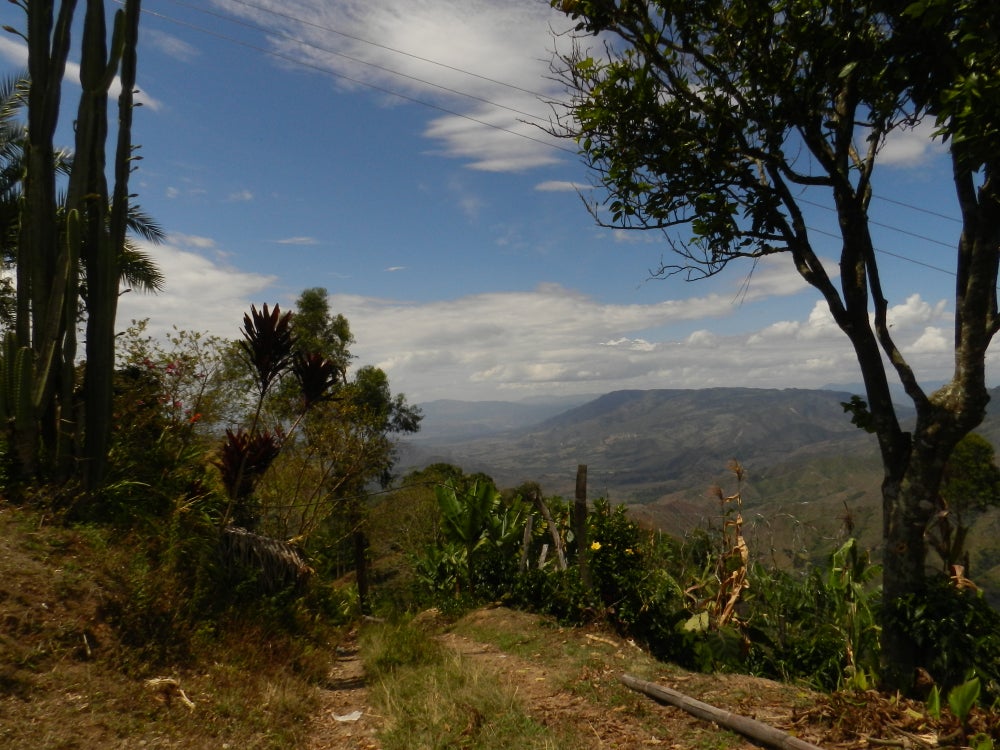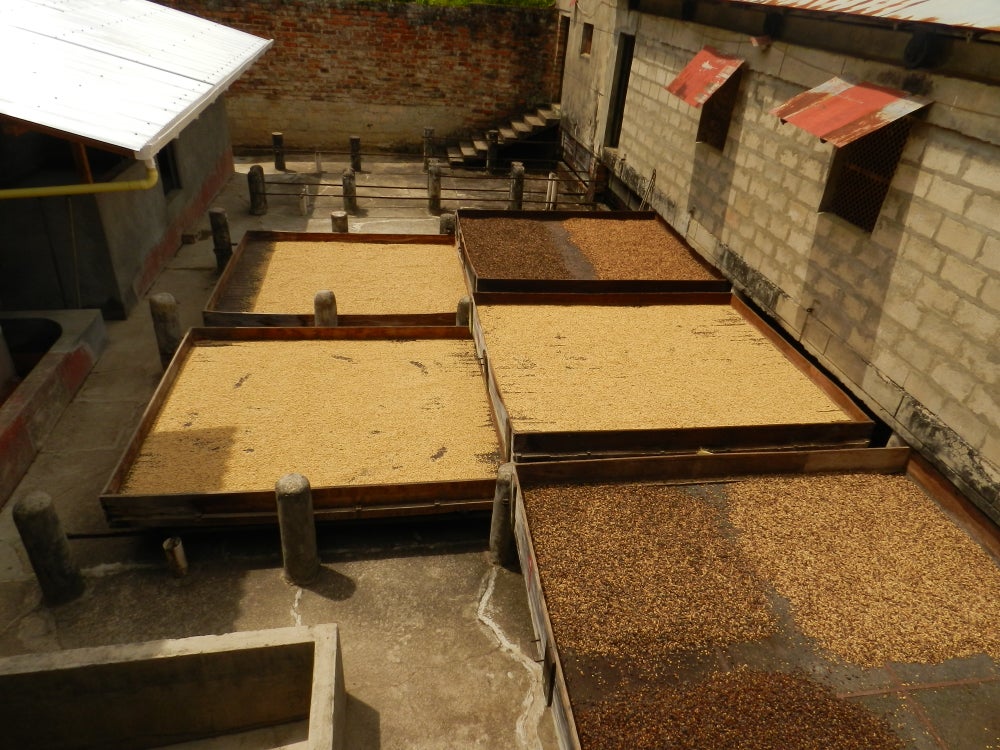About This Coffee
A history of conflict and instability has made it difficult for coffee producers in Cauca to market their coffee as microlots. As the region becomes more accessible, Cauca’s high altitudes and ideal microclimates are establishing it as part of the “New Coffee Triangle.” These microlots from small producers working with CAFICAUCA (the Cooperativa de Caficultores del Cauca) demonstrate the incredible potential of Cauca’s coffee production.
Cultivation
Producers receive technical and financial assistance from CAFICAUCA. In addition to coffee, producers also cultivate beans, maize and plantains.
Harvest & Post-Harvest
Farmers selectively handpick ripe cherry and process it on their farms. Some farmers lightly ferment cherry by leaving it in loosely-lidded boxes overnight before pulping. Once pulped, cherry is fermented in tanks and then washed in clean water. Parchment is laid in parabolic dryers covered with mesh that helps control drying temperature. Parchment is raked frequently to ensure even drying. It takes approximately 10 to 15 days for parchment to dry.
About CAFICAUCA
From their roots in 1961 with 297 coffee growers, the Cooperativa de Caficultores del Cauca (CAFICAUCA) has remained focused on economic empowerment for their members. Now, their more than 2,700 members benefit from their value-addition roasting business that captures a larger portion of a coffee’s final value and shares that extra income with producer-members.
In addition to their roasting business, the cooperative provides a plethora of services for its members and their coffee-growing communities. Producers can apply for loans, scholarships and aid from the cooperative as well as purchase fertilizers and other inputs at good prices.
About Cauca
Alongside Nariño and Huila, Cauca is becoming part of the “New Coffee Triangle.” Named after the Eje Cafetero, the region that was once the heart of Colombia’s coffee production, this New Coffee Triangle takes advantage of the high altitudes from the Andes Mountains and water-rich drainage basins that abound in the region.
In Cauca, most coffee is grown in small plots by rural and largely indigenous communities. More than 90,000 families cultivate approximately 93,000 hectares of coffee across Cauca. The most common varieties are Castillo, Colombia, Caturra, Typica, Bourbon and Tabí.
Like Nariño and Huila, Cauca is emerging from a long history of armed conflict and drug smuggling, which isolated the region and made it difficult to maintain coffee traceability.
Covid-19 Impact
We were excited to contract these microlots from two cooperative in Cauca for the first time this year. Unfortunately, the novel coronavirus outbreak that the World Health Organization declared a pandemic in March 2020, made gathering comprehensive traceability information difficult this year. In the coming season, we hope to work with these producers to expand upon their stories and provide you for with more comprehensive cultivation and processing information.
Coffee in Colombia
Colombia has been producing and exporting coffee renowned for their full body, bright acidity and rich aftertaste, since the early 19th century.
Colombia boasts a wide range of climates and geographic conditions that, in turn, produce their own unique flavors in coffee. This also means that harvest times can vary quite a bit. In fact, between all its different regions, Colombia produces fresh crop nearly all year round.
The increasing focus on the specialty industry is changing the way traders and farmers do business. It is becoming more common for farmers to isolate the highest quality beans in their lots to market separately. These higher-quality lots are often sold under specific brands or stories.
Besides its wide variety of cup profiles, Colombia has quickly expanded its certification options over the past 10 years. The most common certifications available are Fairtrade, Rainforest Alliance, UTZ and Organic.

